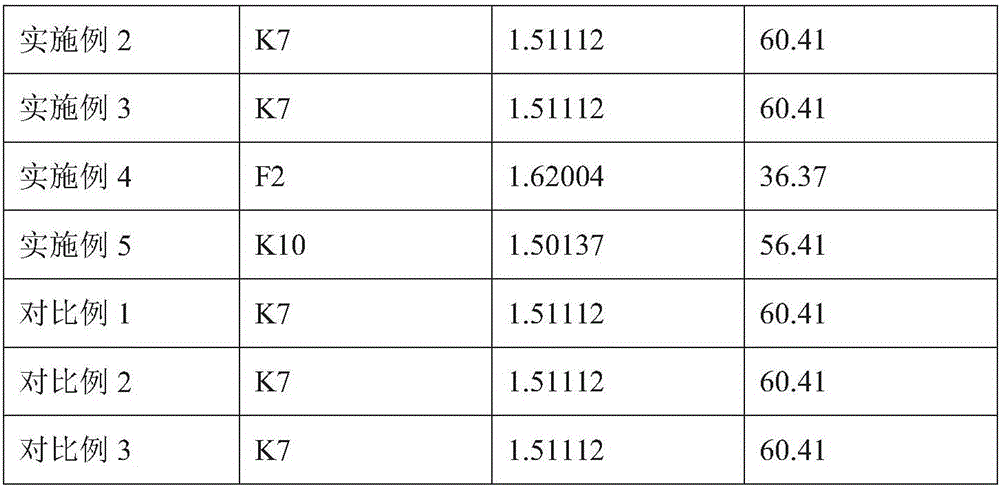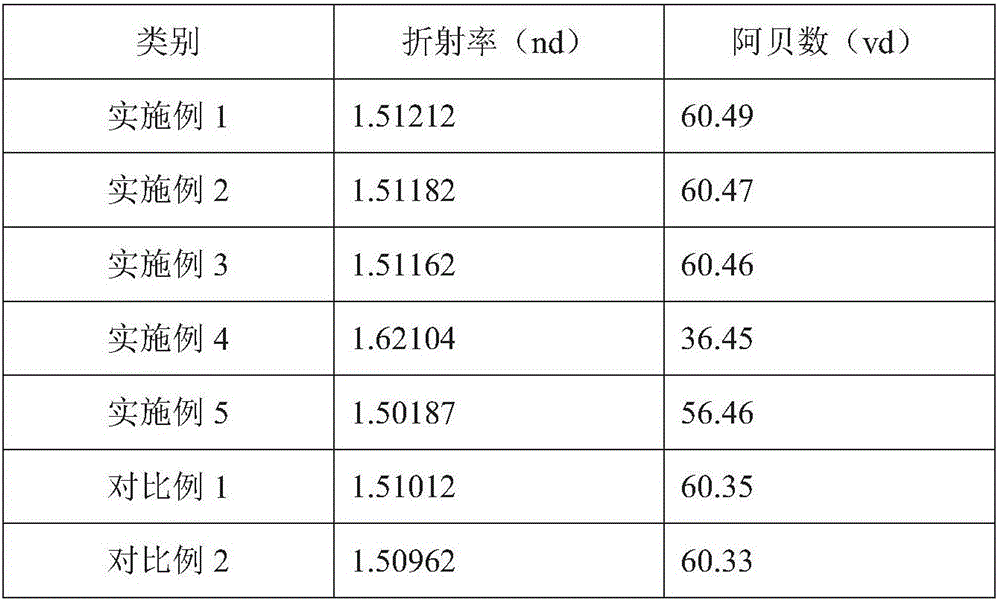Glass re-shaping process
A molding process, glass technology, applied in glass molding, glass pressing, glass manufacturing equipment, etc., can solve the problems of low product quality rate, irregular glass shape, uneven shrinkage of products, etc., to avoid uneven heating, The structure does not change and the effect of improving the product quality rate
- Summary
- Abstract
- Description
- Claims
- Application Information
AI Technical Summary
Problems solved by technology
Method used
Image
Examples
Embodiment 1
[0031] Embodiment 1 The technology of glass reshaping comprises the following steps:
[0032] (1) Preparation of coating: Take asbestos powder, silicone modified acrylate resin, methacryloxysilane, aluminosilicate and isopropanol respectively according to the proportioning ratio of 1:1.5:0.02:0.008:1. After the asbestos powder is ground, pass through a 600-mesh sieve, add methacryloxysilane and isopropanol to mix, put it in a high-speed disperser and disperse evenly for 8 minutes, add silicone modified acrylate resin and aluminosilicate to continue dispersing for 3 minutes , that is;
[0033] (2) Coating the surface of the glass blank with paint: use a sponge scraping tool or a brush to dip an appropriate amount of paint from top to bottom to coat with a coating thickness of 30μm, dry at 70°C for 30min, and then Dry at 100°C for 180min;
[0034] (3) Put the coated glass blank on the porcelain box, transport it into the heating zone in the softening furnace through the conve...
Embodiment 2
[0037] Embodiment 2 The technology of glass reshaping comprises the following steps:
[0038] (1) Preparation of coating: Take asbestos powder, silicone modified acrylate resin, methacryloyloxysilane, aluminosilicate and isopropanol respectively according to the proportioning ratio of 1:2:0.04:0.01:1.5. After the asbestos powder is ground, pass through a 600-mesh sieve, add methacryloxysilane and isopropanol to mix, put it in a high-speed disperser and disperse evenly for 8 minutes, add silicone modified acrylate resin and aluminosilicate to continue dispersing for 3 minutes , that is;
[0039] (2) Coating the surface of the glass blank with paint: use a sponge scraping tool or a brush to dip an appropriate amount of paint from top to bottom to coat with a coating thickness of 30μm, dry at 70°C for 30min, and then Dry at 100°C for 180mmin;
[0040](3) Put the coated glass blank on the porcelain box, transport it into the heating zone in the softening furnace through the con...
Embodiment 3
[0043] Embodiment 3 The technology of glass reshaping comprises the following steps:
[0044] (1) Preparation of coating: Take asbestos powder, silicone modified acrylate resin, methacryloyloxysilane, aluminosilicate and isopropanol respectively according to the proportioning ratio of 1:1.5:0.01:0.005:1. After the asbestos powder is ground, pass through a 600-mesh sieve, add methacryloxysilane and isopropanol to mix, put it in a high-speed disperser and disperse evenly for 8 minutes, add silicone modified acrylate resin and aluminosilicate to continue dispersing for 3 minutes , that is;
[0045] (2) Coating the surface of the glass blank with paint: use a sponge scraping tool or a brush to dip an appropriate amount of paint from top to bottom to coat with a coating thickness of 30μm, dry at 70°C for 30min, and then Dry at 100°C for 180mmin;
[0046] (3) Put the coated glass blank on the porcelain box, transport it into the heating zone in the softening furnace through the c...
PUM
| Property | Measurement | Unit |
|---|---|---|
| thickness | aaaaa | aaaaa |
Abstract
Description
Claims
Application Information
 Login to View More
Login to View More - R&D
- Intellectual Property
- Life Sciences
- Materials
- Tech Scout
- Unparalleled Data Quality
- Higher Quality Content
- 60% Fewer Hallucinations
Browse by: Latest US Patents, China's latest patents, Technical Efficacy Thesaurus, Application Domain, Technology Topic, Popular Technical Reports.
© 2025 PatSnap. All rights reserved.Legal|Privacy policy|Modern Slavery Act Transparency Statement|Sitemap|About US| Contact US: help@patsnap.com



